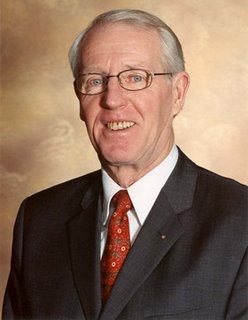Since its independence, Morocco has adopted a long process to enhance its human potential and has worked to establish a modern economy capable of guaranteeing the country's development, noted a report on Morocco's human development during the last 50 years and on prospects for 2025. Today's Morocco Times carries a full report on progress towards this goal.
Full story Morocco Times: Morocco determined to enhance human potential
Morocco has created an academy for young scientists which it is intended will encourage and promote scientific research and reinforce communication between Moroccan scientists.
 Setting up this structure translates public authorities' determination to enhance scientific research as a strategic choice accompanying national and international evolutions, said, on this occasion, Minister of National Education and Scientific Research, Habib El Malki.
Setting up this structure translates public authorities' determination to enhance scientific research as a strategic choice accompanying national and international evolutions, said, on this occasion, Minister of National Education and Scientific Research, Habib El Malki.The academy, he said, will give a new impetus to scientific research in Morocco and contribute to promoting investments in the sector.
The Minister called on the academy to raise awareness on the importance of converging knowledge with religious and cultural values to contribute to sustainable development and take up challenges of globalization and international mutations.
The Moroccan academy was created in implementation of recommendations of a meeting of the World Academy for Young Scientists, held in Marrakech in December. The meeting called for the creation of such structures and of national networks for young scientists.
 According to sources in the Moroccan Interior Ministry, some 160 would-be immigrants were arrested in Morocco during the first five days of January.
According to sources in the Moroccan Interior Ministry, some 160 would-be immigrants were arrested in Morocco during the first five days of January.About 90 foreigners were among the persons who were arrested during different control and surveillance operations in various regions in Morocco.
Thousands of Moroccans and foreigners, mostly sub-Saharans, attempt every year to clandestinely cross to Europe via Morocco in search for better life opportunities.
Morocco has made cracking on illegal migrants among its top priorities.

The Moroccan Association of Pharmaceutical Industry (APIM) has deplored the delay registered in the adoption of the new Pharmacy Law and launched a call to pass it in order to liberalise the capital of the pharmaceutical industry.
“After the agreement on the majority of the amendments of this law and given the consensus of the Ministry of Health, the APIM is surprised that the law has been frozen in Parliament for unknown reasons,” said Omar Tazi, president of the APIM, at a press conference on Thursday in Casablanca.
According to Tazi, “freezing this important project harms national interests and has negative effects on the national pharmaceutical industry.”
Full story Morocco Times: APIM deplores delay over adoption of Pharmacy Law
According to an as yet unreleased report, Morocco must double job creation to 400,000 a year over the next 20 years to prevent mass unemployment that would threaten its stability. The report, ordered by King Mohammed VI as part of his on-going reforms, is the result of two years of work by dozens of Morocco's leading experts, who considered how to cure the country's problems of poverty, shaky economic growth and corruption.
The draft of the official report says Morocco would face economic stagnation, water shortage, and mass unemployment if it failed to embrace a sound strategy to steer the country towards a bright future. A less competitive economy, with a weak growth, will spawn an unemployment rate of more than 20 per cent and worsen poverty and social marginalisation.
 The report goes on to say that the country has to change pace to create 400,000 jobs per year instead of the 200,000 currently created.
The report goes on to say that the country has to change pace to create 400,000 jobs per year instead of the 200,000 currently created.The report was supervised by one of King Mohammed VI's top advisors, Abdelaziz Meziane Belfkih (pictured left).
The report blamed government neglect of the rural population and of women in the past as among the main causes of the country's current difficulties.
Morocco, which now enjoys political stability and consensus between King Mohammed and most of the country's influential political and social forces over democracy and a market economy, has the opportunities to make prosperity take root, it said.
The report cited strengthening national consensus, a more integrated and competitive economy and winning the battle against poverty as among the factors required for Morocco to move on a prosperous path.
"The country has to break definitely with the woes which are the causes of its underdevelopment so it will be able to advance towards a better future,"

Morocco produces 55,000 tons of couscous and 45,000 tons of alimentary paste per year, revealed the National Agency to Promote small and medium enterprises (ANPME).
In its latest bulletin, ANPME said the annual production capacity of the Moroccan companies (16 operational units employing 650 persons) is estimated at 170,000 tons.
The average national consummation of Couscous is around 1.6kg/year/person and of alimentary paste is at 1.55kg/year/person.
Moroccan annual exports of these products are estimated at 2,446 tons, while export/production ratio is around 1.5%.
President of Rotary International extended to king Mohammed VI of Morocco its award of honor for 2004-2005 in recognition of his actions in social and humanitarian fields and in the service of peace.
This coincides with Rotary International celebration this year of its hundredth anniversary.
 The award was handed, here Friday, to Prince Moulay Rachid, younger brother of the Moroccan sovereign, by Rotary International President, Carl Wilhelm Stenhammar (pictured right).
The award was handed, here Friday, to Prince Moulay Rachid, younger brother of the Moroccan sovereign, by Rotary International President, Carl Wilhelm Stenhammar (pictured right).The award of honor is the highest distinction granted by Rotary International to heads of State and eminent international figures.
The international organization extended its award for 1993-1994 to late king Hassan II.
Rotary is a worldwide organization of business and professional leaders that provides humanitarian service and helps build goodwill and peace in the world.
Approximately 1.2 million Rotarians belong to more than 31,000 Rotary clubs located in 167 countries.
 Moroccan Justice Minister Mohamed Bouzoubaa has announced that the divorce rate has dropped 40 per cent since the introduction of the new Family Code in February 2004. He said the figure shows the positive impact of the amendments to legislation that provide for the enhancement of women's and child's rights, and the consolidation of family relations. Last May, Bouzoubaa revealed that the number of marriage contracts stood at 243,492 for the period from February 2004 until January 2005, an increase of 2.76 per cent from the same period the year before.
Moroccan Justice Minister Mohamed Bouzoubaa has announced that the divorce rate has dropped 40 per cent since the introduction of the new Family Code in February 2004. He said the figure shows the positive impact of the amendments to legislation that provide for the enhancement of women's and child's rights, and the consolidation of family relations. Last May, Bouzoubaa revealed that the number of marriage contracts stood at 243,492 for the period from February 2004 until January 2005, an increase of 2.76 per cent from the same period the year before.Tags: Morocco, Fès, Maghreb, news

No comments:
Post a Comment